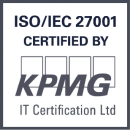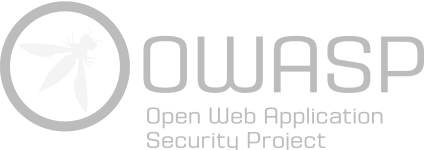Start collaborating with other fincrime teams
Learn moreTrust is the essential foundation in fighting financial crime. It’s more important than regulation, and more enduring than technology. Laws and systems matter, but collaboration ultimately depends on people. And people can’t collaborate without trust.
That was the message at a recent Salv panel discussion in Riga that brought together banks, regulators and fintechs to explore how Latvia can strengthen its intelligence-sharing culture. With the EU’s new Anti-Money Laundering Regulation (AMLR) on the horizon, and Article 75 set to define how crime-related data gets shared across the Europe, the timing could hardly be better.
As Siiri Grabbi, Sanctions and Counter-Terrorism Financing Officer at Coop Pank, put it: “The human touch is very important. It’s about seeing the person behind the computer.”
.jpg)
Key takeaways from the panel
- Trust is the foundation of effective financial crime intelligence sharing — regulation alone isn’t enough
- Estonia’s model shows what works: structured frameworks, shared templates, and regulator buy-in
- Latvia is moving forward, with strong collaboration between banks, regulators and legal advisors
- Cross-border coordination is still hard — Article 75 will help, but practical tools are needed now
- Salv Bridge enables fast, structured sharing, helping institutions respond in minutes, not days
Building a culture of trust
Estonia’s experience shows what can happen when that culture takes hold. There, analysts from banks use Salv Bridge daily to share intelligence on sanctions, fraud and money-laundering cases.
“I know that person in the other bank who will receive the message, and I can trust them to share the right information back.”
— Siiri Grabbi, Coop Pank
Those relationships extend beyond banks. Estonia’s tax and customs board and internal security service all collaborate, and the collaboration is also very highly appreciated by the Financial Intelligence Unit (FIU). What began as informal calls has become a structured process built on confidence.
The lesson for Latvia is clear: effective information exchange depends as much on culture as on compliance.
Several speakers said that change must start from the top. Edgars Pastars, advisor to Finance Latvia and Partner in regulatory and compliance at COBALT, agreed that management needs to give lawyers the right mandate. “Don’t just ask, ‘Is it mandatory?’ Ask, ‘Is it allowed?’ Explain the logic of the intended activity simply,” he said. The difference is what turns progress.
Inside institutions, silos matter too. Edgars and Siiri both urged compliance and legal teams to work together early. Estonia’s success, they noted, owes much to regulators and data-protection specialists learning to interpret the law in the same way.
“Don’t just ask, ‘Is it mandatory?’ Ask, ‘Is it allowed?’ Explain the logic of the intended activity simply.”
— Edgars Pastars, Finance Latvia
From silos to systems
Latvia’s own journey illustrates why structure matters. Edgars recalled how, after the start of the war in Ukraine, a working group of banks and agencies was formed to coordinate sanctions. Over time it fragmented, and “we lost the whole view of what’s happening.” He said there is now a renewed effort to bring everyone back into the same room.
“Working in silos never works,” said Siiri. In Estonia, she explained, banks have agreed common frameworks for what to ask, how to ask, and under which legal basis. Shared templates and response times, often measured in hours, have made collaboration routine.
“Working in silos never works.”
— Siiri Grabbi, Coop Pank
What works is practical habits, rather than grand policy shifts. Every clear process and predictable interaction builds the confidence to act faster next time.
Crossing borders
Taavi Tamkivi, Salv’s CEO and Co-founder, reminded attendees that criminals cross borders far more easily than institutions do. “In the virtual environment, borders barely exist,” he said. Yet legal and cultural barriers still slow cooperation.
Domestic networks form quickly because people know each other and speak the same language. Cross-border collaboration, by contrast, relies on direct, case-by-case connections, often through “super-nodes” where large volumes of transactions meet.
“After establishing a direct connection, the trust between institutions increases.”
— Taavi Tamkivi, Salv
Siiri shared how Estonia and Lithuania now coordinate directly. When Paysera joined the Salv Bridge network, she said, “it was a huge step forward.” Real-time data exchange means investigators can act within minutes — often saving customers’ funds.
The technology is only part of it. Taavi said direct connections build human trust, too. He’s found the same passion for fighting crime among fintech fraud teams as in traditional banks.
But regulation still lags. Edgars noted that Article 75 should eventually harmonise rules, yet each country currently interprets directives differently.
“Everyone who has tried to knock on the door of another financial institution outside of their home country knows it’s not easy. Sometimes you can’t even find which door to knock at.”
— Edgars Pastars, Finance Latvia
Even if legal arrangements exist, tools and trust are still required.
Looking ahead
One question from the floor turned to instant payments and whether fraud monitoring must soon become 24/7. Siiri was sceptical that full round-the-clock teams are realistic, but Taavi suggested banks could borrow ideas from tech companies — such as using on-call responders and automated blocks triggered by shared alerts.
He also reminded the audience that the goal isn’t just recovering victims’ money — it’s disrupting criminals’ business models.
“If their profitability goes down, they stop targeting these banks.”
— Taavi Tamkivi, Salv
Despite the challenges, the mood in Riga was confident. Latvia has the people, expertise and determination to build a connected financial crime community. The next step is coordination — turning cooperation from intention into instinct.
That’s where Salv continues to play its role: creating neutral spaces where banks, regulators and fintechs can meet as equals, share lessons, and build trust together. Trust grows through repetition, through each shared case, each fast response, each conversation between people who now know one another by name.
“Trust is built when you know the person on the other side.”
— Siiri Grabbi, Coop Pank
Latvia’s financial community is ready to put that principle into practice — learning from Estonia’s experience, and showing how collaboration, not competition, is the way to beat financial crime.



